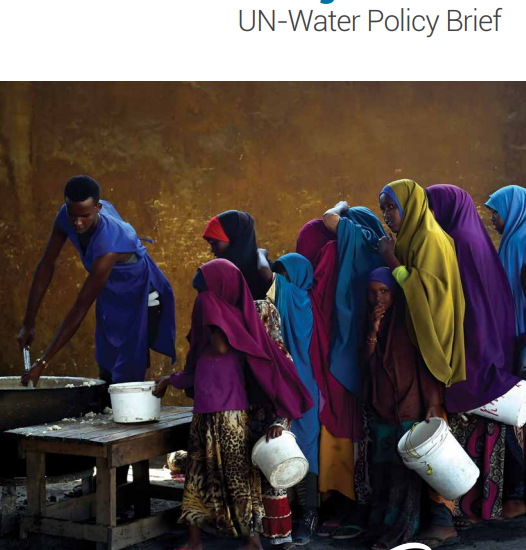UN Water says water management must play a central role in adapting to worst effects of climate change
- September 30, 2019
- Posted by: administrator
- Category: Agriculture, Environmental, Global

The UN says that water management must play a central role in adapting to the worst effects of climate change and reducing greenhouse gases.
A new policy brief by UN-Water that argues that there are significant co-benefits to managing climate and water in a more coordinated and sustainable manner.
The way we manage water resources can help us tackle climate change in two ways,” said Gilbert F. Houngbo, Chair of UN-Water and President of the International Fund for Agricultural Development (IFAD): “First, by coordinating across sectors we can reduce the impacts of floods and droughts, adapt to the expected increase in unpredictability and ensure communities and businesses have the water they need to thrive. And second, we can reduce harmful emissions by making water supply more sustainable.”
In the new policy brief, developed by an expert group, UN-Water highlights that climate change increases variability in the water cycle and makes extreme weather events more frequent, which threatens billions of people’s access to water and sanitation services and places huge stress on ecosystems.
At the same time, growing demand for water is leading to an increase in energy-intensive pumping, treatment and transportation, thereby raising carbon emissions and exacerbating climate change.
According to UN Water, national and regional policy and planning must view water management through a climate resilience lens. Increased investment is needed to improve hydrological data, institutions and governance, education and capacity development, risk assessment and knowledge sharing.
Crucially, lower-income populations, who are disproportionally affected by climate change, must be reached through targeted strategies that help them cope with new conditions.
Many countries and international river basin authorities are already implementing solutions that meet integrated water and climate challenges, but more needs to be done.
Limiting global warming to 1,5 degrees above pre-industrial levels, compared to 2 degrees, can have huge implications on water resources as it may reduce the proportion of the world’s population exposed to an increase in water stress by climate change by up to 50%.
Gilbert F. Houngbo continued:
“Uncertainty about the future cannot be an excuse for inaction today. We cannot afford to wait to make water management more climate resilient and sustainable. We have the tools, methods and financing mechanisms at our disposal. We must act now.”
Click here to read the policy brief
